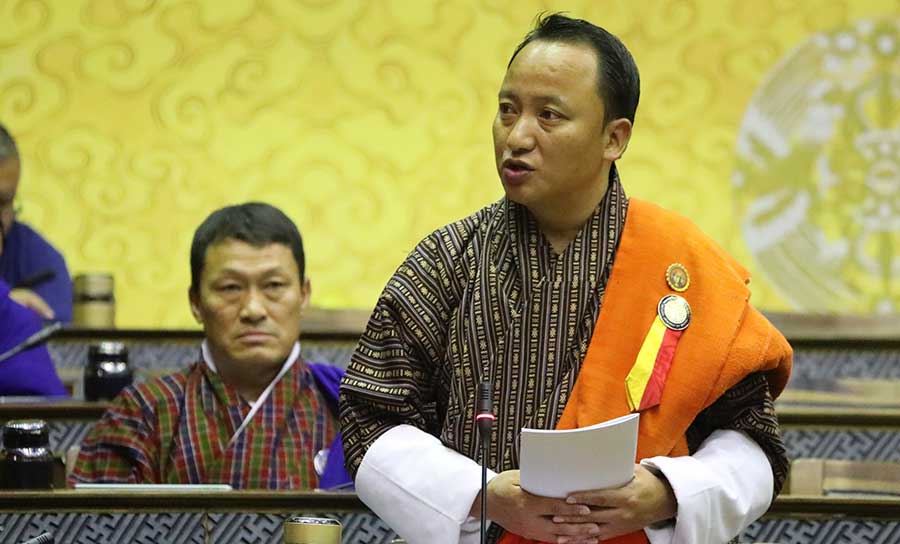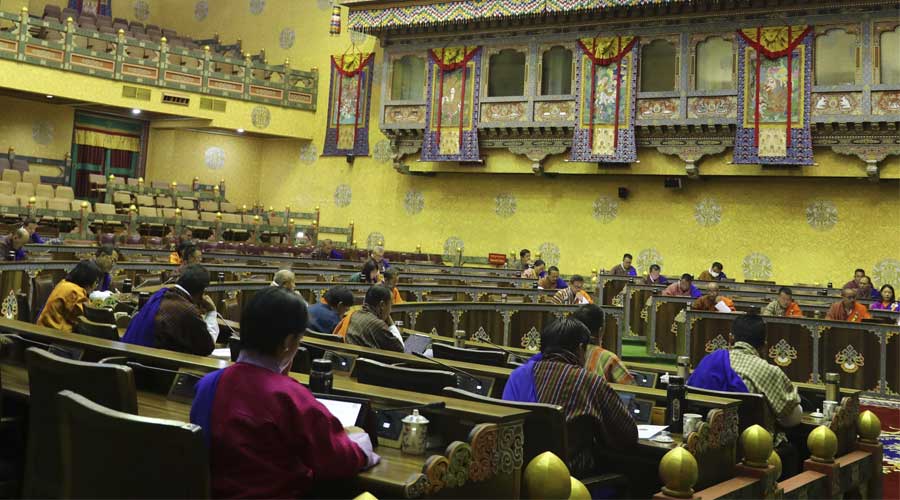Land and building owners across the country will either see an increase or a decrease in their taxes come January next year if the Property Tax Bill is enacted. The government is proposing to amend property taxes in the country replacing the Revised Taxation Policy of 1992. The Finance Minister who describes the bill as “historic” introduced it in the National Assembly today.
People across the country can expect to pay a uniform tax of 0.1 per cent on the taxable value of land and buildings. When the new taxes come into effect, they will be based on the new Property Assessment and Valuation Agency (PAVA) rates the Cabinet approved a few weeks ago.
The new PAVA or compensation rates have been calculated taking the average of the total current market value of the property, the collateral value of the property and the old PAVA rate of the property.
The Finance Minister said as the current property taxation is based on the Revised Taxation Policy 1992, there are lots of inconsistencies and inequalities in how much a property owner is taxed.
 “The current property taxation is such that, for instance, the landowners in Thimphu and Gelephu town pay the same amount of tax despite the two places having a substantial difference in land value. Likewise, people of Drametse in Monggar and Paro town are equally taxed. Debsiphakha in Thimphu and Laya, Lunana, Lingzhi and Shingkhar Lauri have the same property taxes. Similarly, Rangjung, Jomotsangkha, Tashicholing, Sibsoo, Hongtsho, Kabesa and Khasadrapchu all share the same tax rate. That’s why there is a huge disparity because all these places are taxed at the rural rate of Nu 12 per acre,” said Finance Minister, Namgay Tshering.
“The current property taxation is such that, for instance, the landowners in Thimphu and Gelephu town pay the same amount of tax despite the two places having a substantial difference in land value. Likewise, people of Drametse in Monggar and Paro town are equally taxed. Debsiphakha in Thimphu and Laya, Lunana, Lingzhi and Shingkhar Lauri have the same property taxes. Similarly, Rangjung, Jomotsangkha, Tashicholing, Sibsoo, Hongtsho, Kabesa and Khasadrapchu all share the same tax rate. That’s why there is a huge disparity because all these places are taxed at the rural rate of Nu 12 per acre,” said Finance Minister, Namgay Tshering.
Taxes will now be levied based on the value of the property or on an ad valorem basis unlike the current practice of taxing based on the size of the land. Currently, people pay a minimal amount as property taxes. For instance, Chuzhing or wetland in rural areas is charged Nu 24 per acre and Nu 12 for an acre of Kamzhing or dry land.
Likewise, Group A towns like Thimphu, Phuentshogling and Samdrup Jongkhar are exacted 25 Chhetrum per square feet of residential land and 50 Chhetrum per square feet of commercial or industrial land.
“The revised property tax will be one of the lowest in the world. A person owning more properties will now be taxed more and vice versa because we will now be implementing ad valorem taxes. Moreover, there will be a surcharge of 15% on the amount of land tax each year if the land is left vacant in urban areas,” said Finance Minister, Namgay Tshering.
However, there will be a concession of 90 per cent of tax payable on wetlands or Chuzhing and for highland communities. Similarly, Traditional Houses used fully for familial residential purposes in rural areas and Protected Traditional Houses in urban areas will see up to 50 per cent remit on the tax payable.
The members, including the Opposition, expressed their support to the government in amending a “politically-sensitive” bill. They also shared recommendations that should be taken into account.
“I think it is a very significant moment that the bill is being introduced in the house for the first time today. Moreover, the principle of a value-based taxation system is also plausible. However, the government has to develop the Yenlag Throms and Dzongkhag Thromdes further so that the government’s revenue source is expanded,” said Opposition Leader, Dorji Wangdi.
“For instance, the Rangjung town in Tashigang is identified as a Yenlag Throm and residents are imposed Yenlag Throm taxes but it is yet to have the proper town-like infrastructure and people are yet to benefit from the town yet. Likewise, there are many other places like Rangjung throughout the country. Therefore, the committee has to take all these into consideration while reviewing the bill,” said Bartsham-Shongphu MP, Dr Passang Dorji.
“As we are now going to have ad valorem taxes, I am hopeful that people in Paro will be compensated with equal PAVA rates as in Thimphu,” said Lamgong-Wangchang MP, Ugyen Tshering.
“To benefit paddy farmers, we can exempt them from taxes altogether,” said Agriculture Minister, Yeshey Penjor.
Members also recommended doing away with land taxes for Highland Communities and agricultural land. Some also expressed the need to properly assess the development status of various towns across the country before fixing the tax rates. Deliberations will continue next week.
Kipchu, Bumthang










